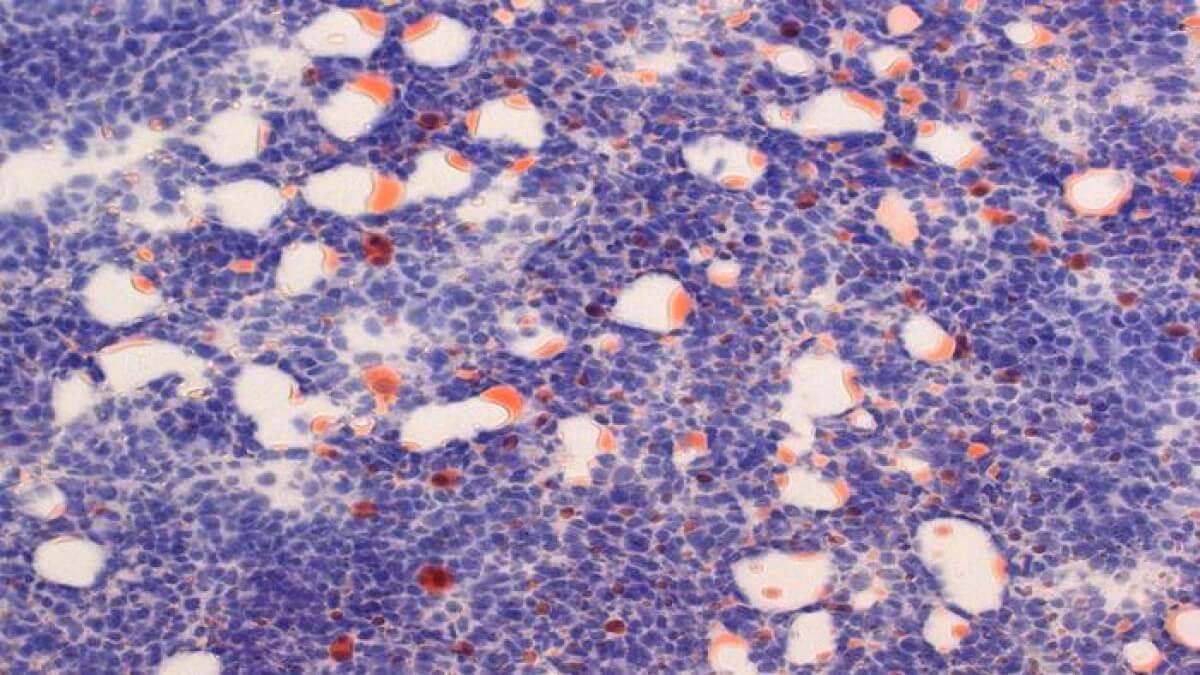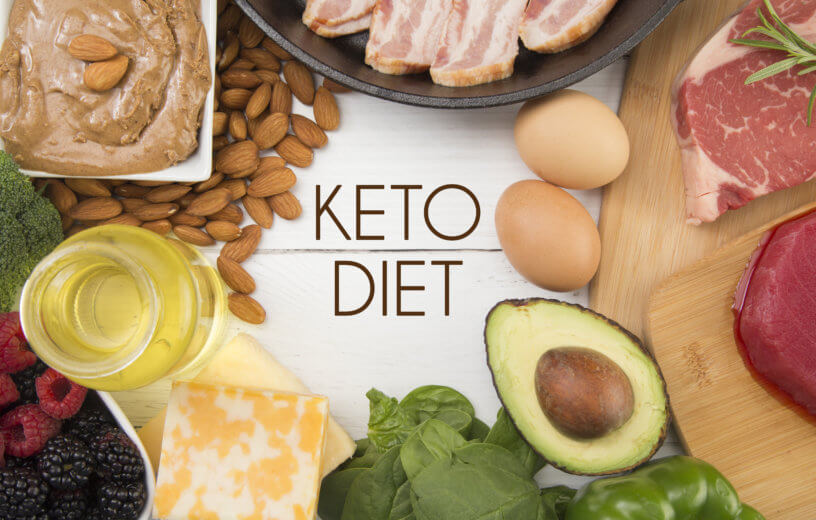COLD SPRING HARBOR, N.Y. — The trendy keto diet could help fight cancer, a new study explains. Although studies continue to debate the benefits of such a high-fat, low-carb diet, scientists in New York found that ketogenic diets help to starve tumors of the glucose they need to grow.
Experiments revealed that high-fat, low-carb meals also sped up a lethal wasting disease in mice with pancreatic and colorectal cancer. The extreme weight loss, called cachexia, happens in some patients, leading to loss of appetite, fatigue, and immune suppression.
“Cachexia results from a wound that doesn’t heal,” says Cold Spring Harbor Laboratory (CSHL) Assistant Professor Tobias Janowitz. “It’s very common in patients with progressive cancer. They become so weak they can no longer handle anti-cancer treatment. Everyday tasks become Herculean labors.”
The keto diet involves cutting out foods like bread and pasta and replacing them with plenty of meat and dairy. The team found combining the eating plan with drugs called corticosteroids produced cancer-fighting benefits – without the lethal side-effects. Their tumors shrank and the mice lived longer. Keto can make people lose up to 10 percent of their body weight. Celebrities who follow it include Halle Berry, Kourtney Kardashian, Gwyneth Paltrow, and Megan Fox.
“Healthy mice also lose weight on keto, but their metabolism adapts and they plateau,” Janowitz explains in a media release. “Mice with cancer can’t adapt, because they can’t make enough of a hormone called corticosterone that helps regulate keto’s effects. They don’t stop losing weight.”

Study authors explain that keto causes toxic blood fats called lipids to kill cancer cells by a process called ferroptosis. Replacing the depleted hormone with an anti-inflammatory corticosteroid meant keto still shrank tumors but didn’t kickstart cachexia.
“Cancer is a whole-body disease. It reprograms normal biological processes to help it grow,” says co-lead author Dr. Miriam Ferrer. “Because of this reprogramming, mice can’t use the nutrients from a keto diet, and waste away. But with the steroid, they did much better. They lived longer than with any other treatment we tried.”
The researchers are part of an international Cancer Grand Challenges project focusing on cachexia. They are now working to fine-tune corticosteroid timing and dosage to widen the window for effective keto-based therapies.
“We want to push back against cancer even harder, so it grows slower still,” Janowitz concludes. “If we can broaden this effect, make the treatment more efficient, we can ultimately benefit patients and improve cancer therapeutics.”
The study is published in the journal Cell Metabolism.
The keto diet comes with risks — especially for heart health
While the paleo and keto diets may be the favorites among several celebrities, at least one study ranks them as the worst for heart health. In a scientific study of 10 popular dieting trends, extreme dieting fads like the keto and paleo diets were found to be detrimental to heart health due to reduced fiber intake and a lack of limits on consuming saturated fats. Experts say that although these diets may result in short-term weight loss, they are not sustainable in the long run and could cause lasting damage.
A new report from the American Heart Association (AHA) ranked popular diets based on their impact on heart health. These plans included:
- DASH: Describes an eating pattern that’s like the Dietary Approaches to Stop Hypertension (DASH) diet, emphasizing vegetables, fruits, whole grains, legumes, nuts and seeds, and low-fat dairy and includes lean meats and poultry, fish and non-tropical oils.
- Mediterranean: This pattern limits dairy; emphasizes vegetables, fruit, whole grains, legumes, nuts and seeds, fatty fish and extra virgin olive oil; and includes moderate drinking of red wine.
- Vegetarian/Pescatarian: A plant-based eating pattern that includes fish.
- Vegetarian/Ovo/Lacto: Plant-based eating patterns that include eggs (ovo-vegetarian), dairy products (lacto-vegetarian) or both (ovo-lacto vegetarian).
- Vegetarian/Vegan: A plant-based eating pattern that includes no animal products.
- Low-fat: A diet that limits fat intake to less than 30% of total calories, including the Volumetrics eating plan and the Therapeutic Lifestyle Change (TLC) plan.
- Very low-fat: A diet that limits fat intake to less than 10% of total calories, including Ornish, Esselstyn, Pritikin, McDougal, Physicians Committee for Responsible Medicine (PCRM) diets. Some may also be considered vegan.
- Low-carbohydrate: A diet that limits carbohydrates to 30-40% of total calorie intake, and includes South Beach, Zone diet and low glycemic index diets.
- Paleolithic: It excludes whole and refined grains, legumes, oils and dairy.
- Very low-carbohydrate/ketogenic: Limits carbohydrate intake to less than 10% of daily calories and includes Atkins, ketogenic and the Well-Formulated Ketogenic diets.
South West News Service writer Mark Waghorn contributed to this report.


Nobody should trust the AHA anymore with their stubbornness to change any of their “core beliefs” when science debunks them.